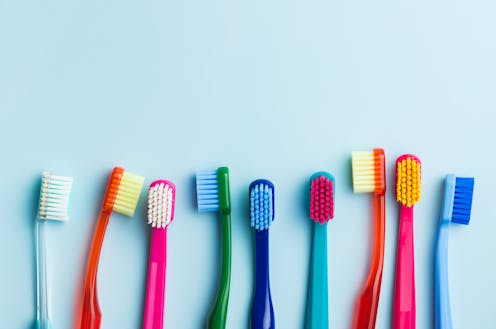Going to the dentist is expensive. Here are 3 things you can do to protect your oral health – and 3 things to avoid
- Written by Dileep Sharma, Professor and Head of Discipline - Oral Health, University of Newcastle

Around one in three Australians delayed their visit to a dentist in the last financial year – or didn’t go at all – due to cost.
Given it doesn’t look like dental treatment is being added to Medicare any time soon, what can you do?
Most oral and dental diseases are preventable, if you take care of your teeth and mouth. In-between visits to the dentist, here’s what you can do to avoid preventable issues – and blow-out costs.
What causes diseases in your mouth?
More than 1,000 species of microbes live in the mouth. Most dental and oral diseases are due to an imbalance or overgrowth in these microbes within the plaque (or “biofilm”).
Plaque gathers on the hard surfaces inside the mouth (your teeth), as well as soft surfaces (such as your tongue). Removing plaque manually with brushing and flossing is the most effective way to maintain oral health.
Plaque starts to form immediately after brushing, which is why you should remove it regularly.
Things to do
1. Brush twice a day
Use a toothbrush with soft bristles (either electric or manual). Soft bristles remove plaque without damaging the teeth or gums. A fluoridated toothpaste will help strengthen the teeth.
Brush for at least two minutes, using a sweeping and scrubbing motion, away from the gums. It’s a good idea to start at the back teeth and work your way through to the front teeth. Don’t forget to scrub the biting surface of the teeth.
2. Floss
Don’t skip this step – it’s crucial to clean in-between the teeth where a toothbrush can’t reach. Once a day should be enough.
Whether you use floss, a pick, a bottle brush or other devices may depend on the space between your teeth.
3. Clean your tongue
To completely remove the microbes, it’s also important to clean your tongue regularly (twice daily). You can use a toothbrush while you’re already brushing, or a special tongue scraper – just don’t brush or scrape too hard.
Things to avoid
1. Sugary drinks and refined food
What we eat and drink can affect the mouth’s pH.
When bacteria in the mouth break down sugars, they produce acids. The acidity can dissolve minerals in the teeth and lead to decay.
Refined foods – such as white bread, cakes and pastries – can easily be broken down by the mouth’s bacteria. So, having a lot of them, as well as sugary drinks, can damage the teeth and cause cavities.
Water is the best choice to drink with your meals. Sparkling and soda water are acidic and can lead to mineral loss from the teeth, even when they are unflavoured. There is evidence flavoured sparkling water can be as harmful as orange juice.
2. Tobacco and vaping
Smoking or using smokeless tobacco (such as chewed tobacco or snuff pouches) is linked to oral cancer.
Nicotine is also known to increase the severity of gum diseases – even when inflammation isn’t visible.
This is true for both smoking and smokeless tobacco (such as chewed tobacco or snuff pouches).
Vaping also increases your risk of developing cavities and gum disease.
3. Too much alcohol, tea and coffee
Drinking a lot of coffee, tea or red wine can stain your teeth. So if you’re concerned about your teeth appearing yellow or brown, it’s best to limit your intake.
Drinking alcohol is also linked to an increased risk of developing oral cancers, which most commonly affect the tongue, floor of the mouth, cheek and palate.
Your mouth’s health is linked to your overall health
Leaving oral diseases untreated (such as gum disease) has been linked to developing other conditions, such as liver disease, and pre-existing conditions getting worse.
This is particularly evident if you have diabetes. Evidence shows it’s easier to manage blood sugar levels when gum diseases are properly treated.
You can keep an eye on symptoms such as bleeding gums, which may be an early sign of gum disease. If symptoms worry you, talk to your GP or diabetes educator. They may be able to refer you to a dentist if needed.
Authors: Dileep Sharma, Professor and Head of Discipline - Oral Health, University of Newcastle





